Diagnostic Tests
Diagnostic Tests for Heart Conditions
Click to find out more about each test
Non-invasive
- Ambulatory
Electrocardiogram - Cardiac CT Coronary Angiogram
- Cardiac MRI
- Cardiac Stress Test
- Calcium Scoring CT
- Carotid Ultrasound]
- Echocardiography
- 24-hour Ambulatory Blood
Pressure Monitoring
Invasive
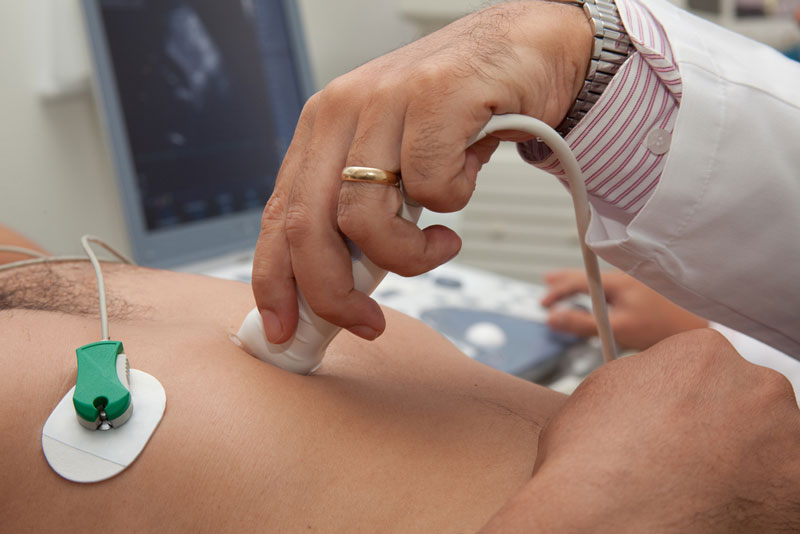
Echocardiography (Echo)
Echocardiography is a painless scan that takes live images of your heart using sound waves. The live images determine the health of your heart muscle, allowing your doctor to monitor how your heart and valves are performing.
What To Expect
A transducer will be applied onto the skin over your chest area, producing sound waves that ‘echo’ back and are displayed as images on a monitor. The scan will take about 30 minutes.
Cardiac Stress Test
Also known as Treadmill Exercise Test (TMX), Treadmill Test or Stress ECG. A cardiac stress test is done to diagnose potential heart-related causes of complaints like chest pain, shortness of breath or light-headedness. This test observes and measures the heart’s response to different levels of exertion during exercise.
What To Expect
You will be hooked up to various monitoring devices and will be required walk and/or run on a treadmill as the speed and angle of inclination are gradually increased.
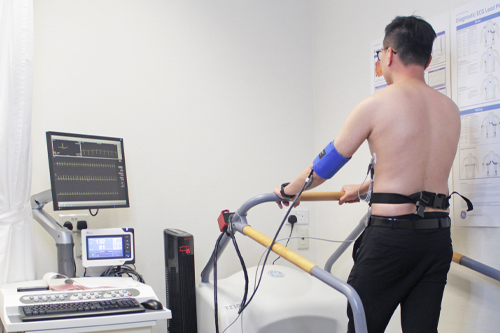
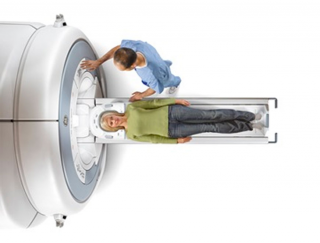
Cardiac CT Coronary Angiogram
Also known as Multi-slice CT Coronary Angiography. This non-invasive imaging procedure detects problems in the important blood vessels that supply blood to the heart muscles. It is chiefly used to diagnose the existence of coronary artery disease, also known as atherosclerosis, which is a narrowing or blockage of the arteries due to the presence of fatty or calcium deposits.
What To Expect
A dye will be injected into your arm through intraveneous (IV) drip, allowing your arteries to be visible on X-ray. Electrodes will then be placed on your chest to monitor heart rate. A CT scanner will then capture cross-sectional images of the heart for further analysis.
Coronary Angiogram
Similar to the Cardiac CT coronary angiogram, however, this is a more invasive test which detects problems in the coronary arteries.
What To Expect
A thin tube (catheter) will be inserted into an artery in your arm or leg (under local anesthetic) and threaded up to the heart. A dye is injected through the catheter, allowing arteries to be visible on X-ray. This procedure is generally painless with quick recovery rates and low risk of complications. If needed, a Percutaneous Coronary Intervention (PCI) can be carried out in the same session using the same catheter.

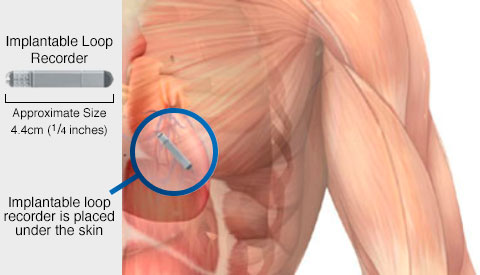
Implantable Loop Recorder (ILR)
To detect and record abnormal heart rhythm that occurs infrequently. This test can also be used to exclude heart rhythm abnormality as the cause of fainting spells.
What To Expect
A small device (smaller than a USB thumb drive) with battery longevity of more than 18 months is inserted beneath the skin on the chest under local anesthesia.
It can automatically record abnormal heart rhythm. In addition, it can also be activated by you or your caregiver when the symptom occurs. The information can then be downloaded in clinic or transmitted through a remote monitoring device.
Cardiac MRI
(Magnetic Resonance Imaging)
This non-invasive MRI test uses a magnetic field and radio frequency pulses to produce detailed pictures of the heart, allowing your doctor to detect or monitor existing cardiac disease.
What To Expect
Electrodes will be placed on your chest to monitor heart rate. You will be required to lie still as the MRI scanner captures the cardiac images. This is a painless test which takes around 30 to 40 minutes with no radiation involved.
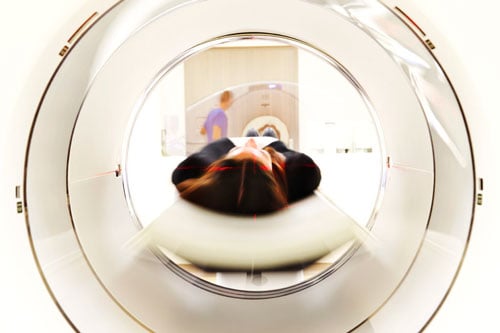

Carotid Ultrasound
This is a painless scan which uses ultrasound to create pictures of the large blood vessels known as ‘carotid arteries’ in the neck. It allows for early detection of blockages due to a build-up of fat, cholesterol, calcium and other substances in the blood, following which, lifestyle changes and medication (if needed) can be started early.
What To Expect
A transducer will be applied to your skin over the neck, producing sound waves that ‘echo’ back and are displayed as images on a monitor. The scan will take about 15 minutes.
Calcium Scoring CT
Also known as Cardiac CT for Calcium Scoring, Coronary Calcium Scoring. This is a non-invasive imaging procedure capable of observing calcium build-up or calcified ‘plaque’ in the coronary arteries. It is used to evaluate the patient’s risk for future coronary artery disease.
What To Expect
Electrodes are placed on your chest to monitor heart rate. A CT scanner will then capture cross-sectional images of your heart for further analysis. No dye is injected during this procedure.
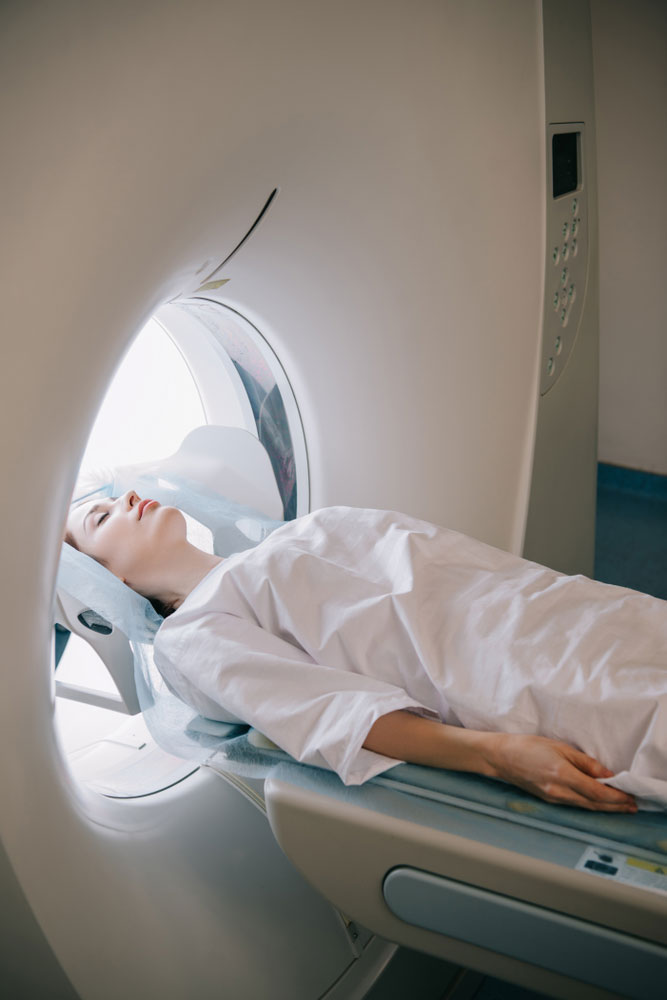

Ambulatory Electrocardiogram (ECG)
This test is useful in detecting transient heart abnormalities which may not be picked up during a regular ECG. It may be conducted for patients who experience heart palpitations, giddiness or fainting spells.
What To Expect
Your ECG will be continuously monitored for 24 to 48 hours as you go about your daily activities. The signals are recorded on a portable device worn by you during this period. The electrode patches, wires and portable device will be secured onto your body to be worn for the duration of monitoring.
24-hour Ambulatory Blood Pressure Monitoring (ABP)
This test enables doctors to clearly understand how a patient’s blood pressure changes throughout the day.
What To Expect
Your blood pressure readings will be taken at regular intervals for 24 hours as you go about your daily activities. The cuff and portable machine are worn for the duration of monitoring.
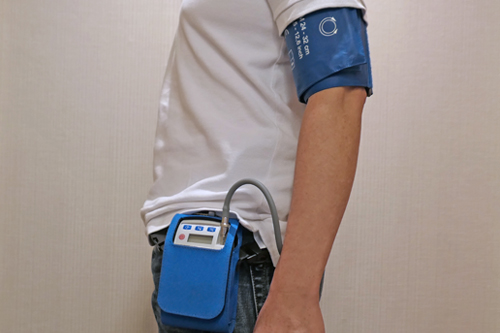
- Category
- Diagnostic, Services


